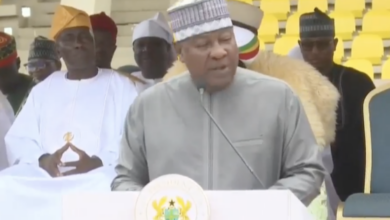
President John Dramani Mahama has emphasized the social significance of scrapping the E-Levy, Betting Tax, and Emission Tax. He highlighted that the National Democratic Congress (NDC) manifesto and national policy were based on the views and concerns of Ghanaians. Any opposition from the minority in Parliament, he argued, is not reflective of an informed position from the New Patriotic Party (NPP), but rather a stance rooted in party politics.
Charles Akwesi Asiedu, a Member of Parliament for Tano South, NDC, shared this perspective on the Adekyee Mu Nsem morning show on Ahotor 92.3 FM, hosted by Alexander Nana Dogbey in Accra. He stressed that the removal of these taxes was not part of any populist agenda, but rather a well-considered policy that resonates with the youth and Ghanaians, who voiced their opposition during town hall meetings and other engagements with professional groups ahead of the 2024 national elections.
Asiedu reiterated that the repeal of these taxes was not a new proposal. It was already included in the NDC manifesto and had been thoroughly discussed and planned before the party assumed office. He believes that the decision by the majority in Parliament to support this move is widely welcomed by the youth and the broader Ghanaian public.
E-Levy Repeal Bill Passes in Parliament
In a related development, Deputy Finance Minister Thomas Nyarko Ampem confirmed that President John Mahama is expected to assent to the Electronic Transfer Levy (E-Levy) repeal bill by Thursday, March 27.
On Wednesday, March 26, Parliament passed a bill to abolish the controversial E-Levy. The bill will now be sent to President Mahama for final approval.
The E-Levy, introduced in 2022 by the previous NPP administration, imposed a 1.5% tax on electronic transactions such as mobile money transfers, bank transfers, and online payments. While proponents argued that the levy would generate revenue for infrastructure development, it faced significant opposition from the public, businesses, and political figures, who raised concerns about its impact on digital transactions and the broader economy.
Since its introduction, the E-Levy sparked protests and public outcry, with critics arguing that it disproportionately affected low-income earners and the unbanked population. The bill’s passage through Parliament is a major step toward scrapping the levy, but its future now rests in the hands of President Mahama.
The abolition of the E-Levy was a key campaign promise by the NDC in the lead-up to the December 2024 general elections. When the bill was debated in Parliament on Friday, there was not a single dissenting voice challenging the move to repeal the tax.
Story by: Alexander Kukah



